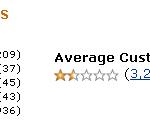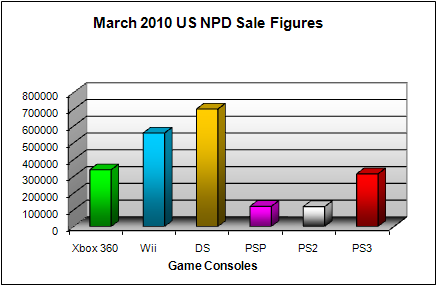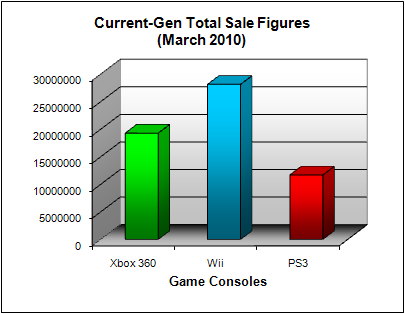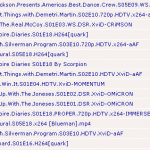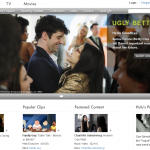Early in the week, I posted the March 2010 NPD US video game sales analysis. March was a good month for Sony, despite the PS3 coming fourth again and being outsold by the Xbox 360, although it may be due to stock issues. It was game sales that gave the PS3 one of the best month since release, with the 4 titles in the top 10, including the number one, and 40% of the top 10 in terms of units sold. It was almost the perfect storm, with two of the PS3’s biggest exclusive (and formerly exclusive) franchises (God of War and Final Fantasy) seeing new releases in the same month.
Since I’m running a bit late today, let’s not waste any more time and get to the news roundup proper.

Starting as usual with copyright news. We’ve already seen the recently passed UK anti online piracy bill being the inspiration behind several scams, but the real question is whether the new law will actually help to prevent piracy. The answer seems to be no, based on the French experienced, and also on figures that show the popularity of anonymous BitTorrent usage, which prevents the authorities from finding out what you’re downloading, increasing in recent month.

BitBlinder, a free tool, promises to block "Marketers, corporations, criminals, and governments" from monitoring your activities
And this is a paid service too, so people are actually spending money now on services which help to protect their privacy, and also their downloading habits, which means that’s less money people will be spending on legitimate purchases, although free services and tools that protect BitTorrent users from prying eyes are available too. And all of these services and tools will make monitoring and tracking illegal downloads much harder, if not impossible. And if the government does ban people from the Internet, these banned users will also be banned from being able to purchase things online, a side effect that the content holders that lobbied the government to introduce such a draconian measure probably didn’t input into their calculations. Remember that these are groups of very short sighted people, so who knows what other effect the sledgehammer three-strikes approach will have in terms of actually hurting legitimate sales.
But having the laws introduced will be seen as a huge victory for copyright holders, and they will continue their crusade to get other countries to adopt similar legislation. Next up on the agenda is UK’s neighbour, Ireland, where the music labels have just won an important court case against the country’s largest ISP, which should now open up the way for three-strikes to be introduced. Expect anonymous BitTorrent usage to go up in Ireland next, I suppose.
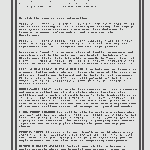
The NFO file from SKiDROW's Assassin's Creed II crack, detailing their work in defeating Ubisoft's DRM
From one set of short sighted people to another, Ubisoft’s “always on” DRM may have finally been cracked, at least for the game, Assassin’s Creed II. Cracking group SKiDROW has released a crack which they claim will make pirated copies of AC2 fully playable, after what they claimed was a “challenge”. Comments posted on torrent websites suggests that they really have done it. Ubisoft will point to the fact that the crack came out more than a month after the game was originally released, which is much longer than the typical 2 or 3 days wait for the crack (and sometimes not even that). But this being the first proper crack for this new DRM system, it was always going to take longer than usual, and perhaps this will make future cracks that much easier. So on one hand, Ubisoft has prevented people from playing the full game without buying, for the first month at least, and that may have helped to get them a few more sales. On the other hand, the crappy DRM may have driven off even more customers, to competing games, or even to piracy to protest the harsh treatment of legitimate customers. So only Ubisoft knows if it has all been worth it or not.
Copyright on YouTube has been put in the spotlight again this week when the Downfall Hitler parodies started disappearing, due to copyright complaints. I think at this point everyone who has heard of YouTube has seen at least one Hitler Downfall parody. While it is true that these clips use copyrighted content, but the fair use protects parodies, since it is a fundamental aspect of free speech. And even if fair use didn’t exist, and it’s slowly becoming this way, is the copyright holder really being hurt by people posting these types of clips. I reckon a lot of people who have seen the clips have not watched the movie Downfall (which is highly recommended), and I suspect many have gone out to buy or rent the movie after seeing the parody clips. Surely, this is a good thing for the copyright holder, as many of them are spending millions trying to artificially produce and promote viral clips of their own, and none of them can beat Downfall Hitler in terms of popularity. Plus, they can actually make money off these user uploaded clips. YouTube’s stance on this is measured. They’re fighting their own copyright battles in court at the moment, and they’re the ones that made it possible for copyright holders to easily find and remove copyrighted clips through their Content ID system. But YouTube saw fit to post a blog post that tells people how to appeal against these types of removals. Once an appeal is lodged, the video is immediately back online, and if the copyright holder wants to get it removed permanently, then they’ll have to resort to the DMCA, which does protect parodies. But with the recent RedLetterMedia Star Wars review removal, and now Downfall Hitler, it seems copyright holders are abusing copyright law to help nobody, and in fact, may be causing damage to themselves.
Avatar may just be the biggest Blu-ray release ever, but many users are finding that their copy simply won’t play in their Blu-ray players. Apparently, this is due to a new version of the BD+ copy protection system, BD+ 5, being deployed. Some Blu-ray players will require a firmware update to fix the playback issue, but you would think that with such a big release, you wouldn’t risk putting such a new copy protection scheme in place. Or at the very least, make sure manufacturers have the firmware updates out *before* you release the new DRM scheme. But that would assume studios care about their customers, which they don’t.

Because if studios cared about the customers, then they wouldn’t make releases like the recent Lord of the Rings Motion Picture Triolgy Blu-ray set. (We’ve moved onto HD news, btw).
I was really interested in seeing how this rushed Blu-ray set of some of the biggest movies ever would do at retail, and while LOTR was the most popular Blu-ray title in the week of release, it definitely didn’t do as well as they should have, even taking into account the fact that it’s more expensive than your regular single Blu-ray movie. It didn’t help that the studios thought wise to release one of the biggest releases of the format so far in a week that’s traditionally poor for sales, the post Easter week. And so it wasn’t a total surprise that the biggest movies to be released on Blu-ray so far (total box office wise, when adding it up for all 3 movies) actually produced a set of weekly results that are actually the lowest for Blu-ray sales for 2010 so far. Comparing to the same post Easter week from last year, the only notable new release back then was The Spirit (with current IMDb rating of 5.0 out of 10), and given a whole year worth of growth and the three of the biggest movies ever for the first time on Blu-ray, less than an $8m increase in weekly revenue was recorded, compared to a $14m increase in revenue in the week earlier. Of course, the post Easter effect was responsible for a large part of this, but you do have a feeling that if the first LOTR trilogy Blu-ray release was treated with a bit more respect, like a proper transfer for the first film, or creating some new extra features for the set, or at the very least, actually bothering to put the same old extra features on a Blu-ray disc instead of sticking the same discs from the DVD boxset in the set (and have the temerity to call the whole thing a “Blu-ray boxset”), and this is all on top of not releasing the Extended Edition, then maybe it would have sold more and fans wouldn’t feel cheated, which is director Peter Jackson’s take on this Blu-ray debacle, reflecting the fact that the director no longer controls these releases, only the studios.
But that’s not really the point. Warner will probably release a Extended Edition with hours of new extra features and with improved video quality, and they may even be kind enough to include the theatrical version in the same release using seamless branching, and all the fans will buy up this special, ultimate, collector’s, edition without hesitation. And that’s what they’ll rely on, and any money they can make off the current rush job will be a bonus. Of course, that bonus is perhaps looking a little less than they had hoped, which may mean they’ll have to milk it a bit longer, and that could mean further delays to the Extended Edition Blu-rays. And if you look at it that way, then you’ll have to give in to the studio and buy the current botched release, so that the EE can get here sooner. Maybe some billionaire can buy up a million copies of it, bury it in the desert next to that E.T. game, and then we can have the Extended Edition released on Blu-ray next week.
In totally unrelated news, Lucasfilms has hinted that the Blu-ray version of Star Wars will be coming sooner than you think, probably before the 3D versions hit the cinemas, and definitely before they milk fans for more money with the new updated, must-have 3D Blu-ray set of Star Wars. I just hope that they include the theatrical versions on the initial Blu-ray release, because my VHS copy of it is not looking too healthy at the moment (and I refused to buy the slightly updated DVD edition that had the theatrical versions as I had already paid for the original DVD box set).
Not much going on in gaming, other than the NPD analysis, so I’ll skip the section for this week. See you next week.

